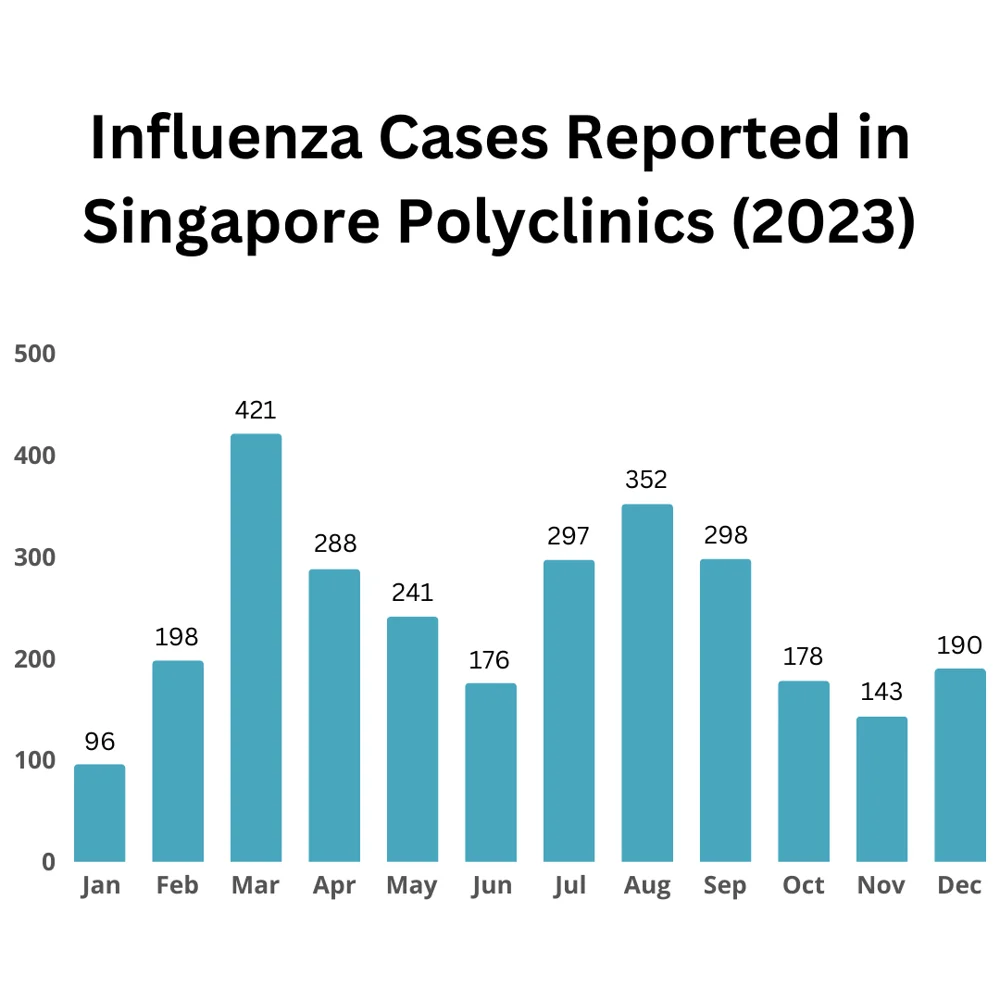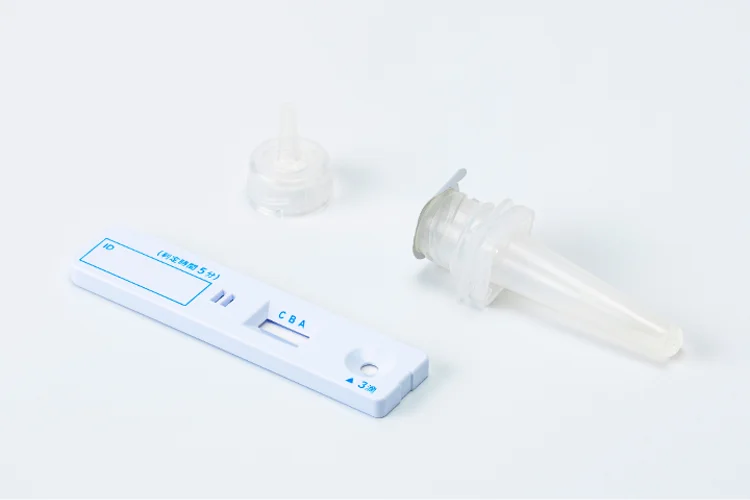Influenza Rapid Test Kit
Last updated: Feb 03, 2026
Rapid influenza diagnostic tests (RIDTs) are used to identify influenza, also known as the flu, which is an acute respiratory infection caused by influenza viruses. There are three main types of influenza viruses: Type A, B, and C, with Types A and B being the most common. The flu mainly spreads through tiny droplets from coughs and sneezes and can also be transmitted by touching contaminated surfaces. Because it is highly contagious, it can spread quickly in crowded places like Singapore, especially during flu seasons.


Given how common influenza is, RIDTs help to provide timely and accurate diagnosis allowing for prompt treatment, which can reduce symptom severity, prevent complications, and limit the spread of the virus within the community.
Influenza Symptoms
Influenza symptoms typically appear within 1 to 4 days of exposure and can range from mild to severe. They may include:
- Fever
- Cough
- Sore throat
- Runny or stuffy nose
- Muscle or body aches
- Headaches
- Fatigue
- Sometimes vomiting and diarrhoea, more common in children
These symptoms can range from mild to severe and can lead to serious complications, particularly in high-risk groups such as the elderly, young children, pregnant women, and individuals with chronic conditions like asthma, diabetes, or heart disease. Complications can include pneumonia, bronchitis, sinus infections, and worsening of other chronic illnesses.
How Do Influenza Rapid Test Kits Work?
RIDTs detect the presence of antigens, which are viral proteins and components of influenza, in respiratory specimens usually collected via nasal or throat swabs. The process usually involves:
- Sample Collection: A nasal or throat swab is used to collect a specimen, which is then placed in a solution to release viral antigens.
- Test Procedure: The solution is applied to a test device containing antibodies that bind specifically to influenza antigens if present.
- Detection: The sample moves along the test strip, and a visible line appears if the antibodies bind to antigens, indicating a positive result.
- Results Interpretation: Results are usually available within 15-30 minutes. A visible line indicates a positive test, while no line indicates a negative result. A control line confirms the test's functionality.
These tests provide quick results for timely treatment, which can reduce the severity and duration of symptoms, decrease the likelihood of complications, and improve patient outcomes.

Influenza Treatment & Prevention
Flu treatment usually involves
antiviral medicines such as oseltamivir (Tamiflu)
and zanamivir (Relenza). These drugs can help shorten the illness by about a day and make
symptoms less severe, as well as prevent complications.
It's also important to focus on prevention strategies, which include:
- Vaccination: Recommended for everyone six months and older, the flu vaccine is the most effective way to prevent influenza and its complications. The specific strains included in the vaccine are chosen annually based on predicted circulating influenza viruses.
- Preventive Measures: Everyday practices like handwashing, covering coughs and sneezes, and avoiding close contact with sick individuals can significantly reduce the spread of influenza.
Disclaimer: The information provided here is for educational purposes and should not be considered as medical advice. Always consult with a healthcare professional for medical concerns and treatment options.

Price of Influenza Rapid Test in Singapore
Our prices for influenza rapid tests and vaccinations are as follows:
| Service | Price* |
|---|---|
| Consultation | From $49.05 |
| Influenza Rapid Test (RIDT) | $38.15 |
| Influenza Vaccine | $38.15 |
| Subsidised Vaccination (Pioneer Generation, Merdeka Generation, CHAS and Babies / Newborn) | From $0 to $35 |
^Prices last updated on Jan 28, 2026. While every effort is made to keep pricing information up to date, please contact our team to confirm the latest rates.
Where to Test for Influenza in Singapore
You can get tested, treated or vaccinated for influenza at our two conveniently located clinics:
- Tanjong Pagar Medical Clinic (Closest MRT: Tanjong Pagar EW15)
- Orchard Clinic (Closest MRT: Orchard Boulevard TE13)
Summary
Influenza rapid test kits are a vital tool in the timely and accurate diagnosis of influenza in Singapore. These tests enable quick decision-making for treatment and isolation, helping to control the spread of the virus. More importantly, rapid testing allows for early medical intervention, which can significantly reduce the severity and duration of symptoms and prevent complications.
How Do I Book an Appointment?
ATA Medical @ Orchard
Nearest MRT: Orchard Boulevard Station (TE13)
Contact Number: 6223 0682
Email: camden@atamed.sg
Opening Hours:
Mon - Fri: 8:30 AM to 12:30 PM, 1:30 PM to 5:30 PM
Sat: 8:30 AM to 12:30 PM
Sun & PH: Closed
ATA Medical @ Tanjong Pagar
Nearest MRT: Tanjong Pagar Station (EW15)
Contact Number: 6223 0682
Email: hi@atamed.sg
Opening Hours:
Mon - Fri: 8:30 AM to 12:30 PM, 1:30 PM to 5:30 PM
Sat: 8:30 AM to 12:30 PM
Sun & PH: Closed


